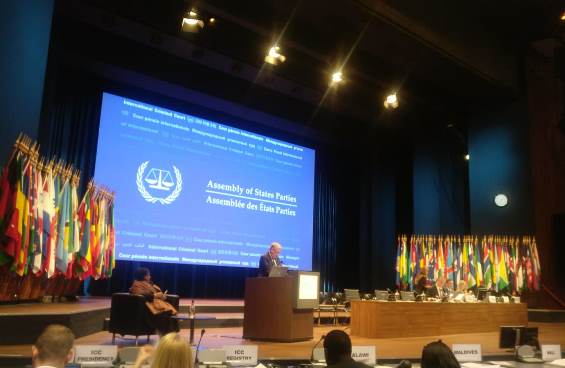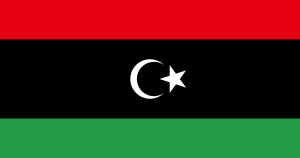Excellencies, Distinguished Delegates, dear friends,
It is my great pleasure to address this Assembly of States Parties, as the year of the 20th anniversary of the adoption of the Rome Statute comes to a close.
It has not always been smooth sailing for this young institution, to put it mildly. There have been many successes. The Court has become a fixture in the international landscape. It stands as a promise that the victims will not be forgotten, their suffering will not remain unnoticed and that justice will one day be done. This was the hope we shared during those five intense weeks in Rome, the reason we all came together since the very beginning to pour our hearts and souls into this concrete expression of the idea that the rule of law, and justice, will eventually prevail.
At the same time, there have been many mistakes. The Court itself has made mistakes – it is not useful for us in this room, the Court’s strongest supporters, to turn our heads from that reality. We must instead confront that reality and ask, in a spirit of cooperation also with the Court, how can we overcome those mistakes, what role can we as States Parties and civil society play to help, and how can we apply the lessons learned moving forward.
Excellencies, ladies and gentlemen, there are three areas where No Peace Without Justice urges the Court, its State Parties and its supporters to pay particular attention and step up our efforts to strengthen not only the Court, but the Rome Statute system as a whole.
First, show strong support for the Court, not just in response to attacks against it but as a matter of course. Public support for the institution, proactively given, can do a lot to insulate the Court against attacks and diminish the impact of those attacks. Cooperation including the execution of arrest warrants and taking action in the face of non-cooperation, would help overcome some of the attacks levelled against the Court for matters over which it exercises little to no control. Establishing national and regional focal points for the ICC would not only be an important demonstration of political support, it would also support the ability of States Parties to deliver practical support in a coordinated and informed way.
Second, the Court as an institution must be strengthened. It is easy to attack a weak institution and do a lot of damage: it is harder to do the same to a strong and resilient institution that can demonstrate an institutional commitment to its clients, namely victims and affected populations, and a proven track record of delivering on its mandate. More needs to be done to on early outreach, including during preliminary examinations, to prevent misconceptions from arising. More needs to be done on planning out what the Court needs to achieve to fulfil it mandate, especially through the development of situation-specific completion strategies. More needs to be done to make the Court an effective and efficient institution, including through strengthening its field presence and reviewing and, where necessary, reforming its institutional structures.
Finally, a great deal more needs to be done to support those who are at risk because of their support for the Court. Human Rights Defenders are the lifeblood of international justice: they are on the frontlines every day. They are the ones engaging with and supporting victims. They bring those victims and witnesses to the Court, sharing their stories that make up the cases brought before the Court. Yet they are subjected to threats, intimidation and harassment. They risk their lives for the hope of justice and its promise for a better future for their communities and their countries. This Assembly and its individual State Parties must do better in providing political support, to show the treatment of these brave, exceptional people will not be tolerated, and in providing practical support, to limit the threats and address them when they happen.
- Download the statement (pdf format)
For further information, please contact: Alison Smith (Director of International Criminal Justice Program) on asmith@npwj.org or Nicola Giovannini (Press & Public Affairs Coordinator) on ngiovannini@npwj.org.
NPWJ and the ICC
No Peace Without Justice, which is a founding member of the NGO Coalition for the International Criminal Court (CICC) and which has been one of the organisations at the forefront of promoting the establishment and entry into force of the permanent International Criminal Court (ICC) and continues to work for its universal ratification, has participated in every session of the ASP since its first session in 2002, the year the ICC was established.




